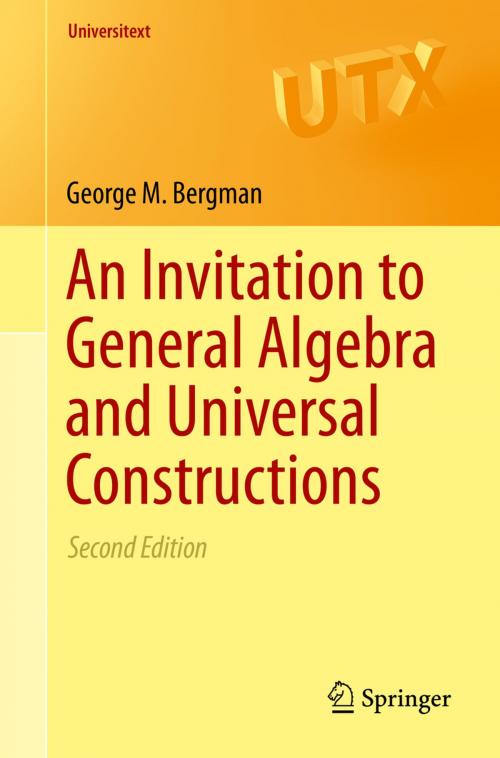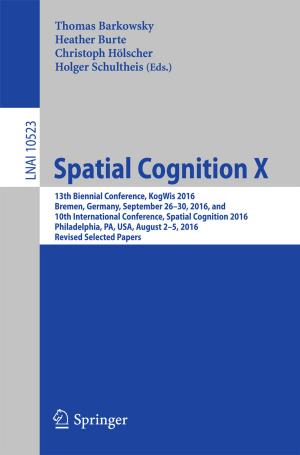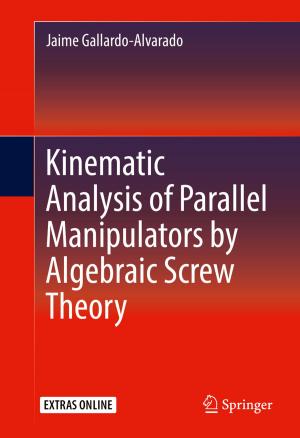An Invitation to General Algebra and Universal Constructions
Nonfiction, Science & Nature, Mathematics, Algebra, History| Author: | George M. Bergman | ISBN: | 9783319114781 |
| Publisher: | Springer International Publishing | Publication: | February 5, 2015 |
| Imprint: | Springer | Language: | English |
| Author: | George M. Bergman |
| ISBN: | 9783319114781 |
| Publisher: | Springer International Publishing |
| Publication: | February 5, 2015 |
| Imprint: | Springer |
| Language: | English |
Rich in examples and intuitive discussions, this book presents General Algebra using the unifying viewpoint of categories and functors. Starting with a survey, in non-category-theoretic terms, of many familiar and not-so-familiar constructions in algebra (plus two from topology for perspective), the reader is guided to an understanding and appreciation of the general concepts and tools unifying these constructions. Topics include: set theory, lattices, category theory, the formulation of universal constructions in category-theoretic terms, varieties of algebras, and adjunctions. A large number of exercises, from the routine to the challenging, interspersed through the text, develop the reader's grasp of the material, exhibit applications of the general theory to diverse areas of algebra, and in some cases point to outstanding open questions. Graduate students and researchers wishing to gain fluency in important mathematical constructions will welcome this carefully motivated book.
Rich in examples and intuitive discussions, this book presents General Algebra using the unifying viewpoint of categories and functors. Starting with a survey, in non-category-theoretic terms, of many familiar and not-so-familiar constructions in algebra (plus two from topology for perspective), the reader is guided to an understanding and appreciation of the general concepts and tools unifying these constructions. Topics include: set theory, lattices, category theory, the formulation of universal constructions in category-theoretic terms, varieties of algebras, and adjunctions. A large number of exercises, from the routine to the challenging, interspersed through the text, develop the reader's grasp of the material, exhibit applications of the general theory to diverse areas of algebra, and in some cases point to outstanding open questions. Graduate students and researchers wishing to gain fluency in important mathematical constructions will welcome this carefully motivated book.















